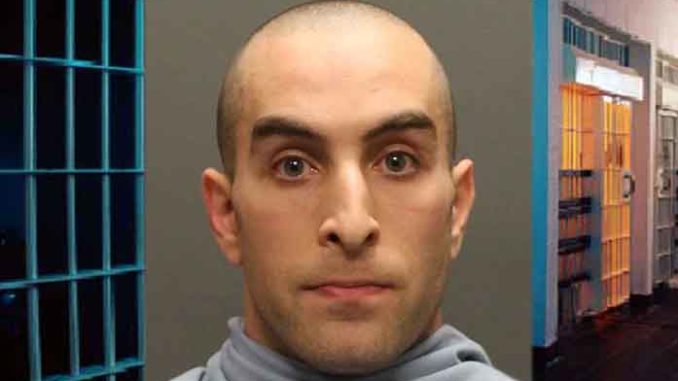
The U.S. Attorney’s Office for the District of Arizona has withdrawn its request to seek a death penalty sentence against the man accused of fatally shooting Deputy U.S. Marshal Chase White in Tucson back in 2018.
Ryan Phillip Schlesinger had been the subject of a death penalty notice in connection with the fatal injuries suffered by White when a U.S. Marshals Service taskforce executed an arrest warrant at Schlesinger’s residence on Nov. 29, 2018.
Schlesinger, who had recently threatened to kill Tucson police officers, had a well-documented history of mental health problems, including two involuntary civil commitments. Just three days before the shooting, the TPD’s Mental Health Support Team sought an emergency court order to have Schlesinger involuntarily committed yet again.
A federal grand jury indicted Schlesinger on 13 counts, two of which the U.S. Attorney’s Office believed warranted a possible sentence of death. However, last month Senior U.S. District Judge Raner C. Collins was presented a motion to withdraw the death penalty notice. Collins granted the request on Aug. 30.
Schlesinger’s case has been delayed by concerns for his mental health and his mental competency, as well as the COVID-19 pandemic. There have also been arguments between Schlesinger’s defense attorney and the U.S. Attorney’s Office over disclosure of various documents which led Collins to issue an order requiring several law enforcement agencies to disclose certain records to the defense.
The government’s withdrawal of the death penalty notice comes as the parties prepare for a jury trial currently scheduled to begin Jan. 17, 2023. Collins issued an order on Sept. 14 which restricts Schlesinger’s defense team from releasing or otherwise divulging information disclosed by the U.S. Attorney’s Office from the personnel files of various witnesses expected to testify.
“Defense counsel (including investigators, paralegals and office staff) receiving disclosure of materials from or related to personnel files of witnesses shall not provide, reproduce or distribute in hard copy or electronic form any personal information contained within that disclosure without further order of the Court,” Collins ordered. “Defense counsel also shall not provide a copy of the disclosure to the defendant” but is allowed to show or otherwise discuss the information with Schlesinger.
Several similar protective orders have been issued by Collins since the beginning of Schlesinger’s prosecution. One such order involves records from White’s autopsy.
White, 41, was survived by his wife and four children. He was a Lt. Colonel with the U.S. Air Force Reserve and was set to be begin a deployment just four days after his encounter with Schlesinger.
READ MORE ABOUT SCHLESINGER’S CASE:
Judge To Rule On Death Penalty Notice In Killing Of Deputy U.S. Marshal
Details Revealed In Arizona Death Penalty Case Involving Killing Of Deputy US Marshal

